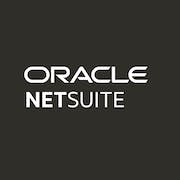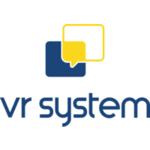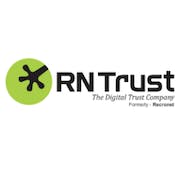Looking for the best business management software? Look no further! Our comprehensive buyers guide has everything you need to make an informed decision and take your business to the next level!
As a modern business owner, it's crucial to keep track of every aspect of your operations from accounting to inventory to customer management. Whether you're a solopreneur or manage a team of hundreds, managing all these processes can be overwhelming, and that's where business management software comes in. It is a comprehensive solution that streamlines all your business processes into one platform, making it easier to manage your operations effectively.
However, choosing the right one can be a challenging task, given the myriad of options available in the market. In this guide, we'll walk you through everything you need to know to make an informed decision when choosing this solution that's tailored to your business needs.
What is business management software?
This refers to a comprehensive suite of computer applications that streamline and automate complex business processes. It is designed to meet the needs of small to medium-sized businesses, as well as large enterprises. Some of the commonly seen industries that use it include retail, manufacturing, healthcare, hospitality, and construction. It also provides a central hub of data and functionality that can help businesses operate more efficiently, track profitability accurately, and stay competitive. Business management software can be used to manage various aspects of a business, including finance, accounting, inventory management, project management, CRM, HR, and sales and marketing. Its flexibility allows it to cater to the needs of a range of business types and sizes. According to Gartner's BPM maturity model assessment, 75% of organizations are still in the midst of standardizing and automating processes.
Common use cases for this technology include:
-
Accounting and finance management: This software enables businesses to handle their financial transactions, generate invoices, manage expenses, and track payments.
-
Project management: The system is used to manage projects from start to finish by setting timelines, delegating tasks, tracking progress and resources, and collaborating effectively.
-
Inventory management: It helps manage stock levels, keep track of products, and automate the ordering process.
-
Human resources management: It offers a range of HR capabilities, from payroll and employee benefits to recruitment and performance management.
-
Customer relationship management: It also assists in managing customer interactions, marketing, sales, and customer support.
What are the benefits of utilizing a business management solution?
This essential tool can help companies to streamline various aspects of operations, from sales and marketing to product development and customer support. With the right business management tool in place, you can save time, boost efficiency, and improve your bottom line. This section will explore the benefits of adopting such an application.
Increased efficiency
It can automate a wide range of manual tasks, such as invoicing, order processing, and inventory management. This automation helps to free up your time and resources, so you can focus on growing your business, developing new products and services, and serving your customers better.
Better data management
With a business management app, you can manage all your data and information in one place. This means you can access customer data, sales figures, and other important metrics easily, and make informed decisions based on the insights that you've gathered.
Improved collaboration
It also allows you to collaborate and communicate with your team members in real-time, regardless of their location. This collaboration helps to streamline your workflows and ensures that everyone is working towards the same goals.
Better customer service
The right business management program allows you to provide better service to your potential customers and existing ones. You can track client interactions, respond to queries promptly, and provide a more personalized service too.
Reduced costs
Investing in this tool can help to reduce your business costs. With automation and better resource management, you can save money on staffing expenses, reduce inventory costs, and avoid unnecessary expenditures. In a survey conducted by RedHat, more than 50% of participants recognized saving money as the main reason for adopting BPM.
10 key features of business management software
This valuable tool has a range of features you should be aware of:
-
Accounting and finance: It often includes modules for managing financial transactions, creating invoices, managing expenses, and tracking revenue. This can help businesses keep accurate financial records and make informed decisions about budgets and investments.
-
Human resources: Many business management software solutions feature a range of HR management tools, such as employee databases, payroll management, and scheduling and time tracking tools. These can help businesses manage their workforce more efficiently and reduce administrative overhead.
-
Project management: Project management tools are often included in this solution, providing functionality such as project tracking, task management, team collaboration, and status reporting. These additional features can help businesses keep projects on track and improve employee productivity.
-
Inventory management: Inventory management is another common feature, which allows businesses to track product levels, manage reorder points, and monitor stock levels in real-time. This can help businesses avoid stock-outs and improve inventory control.
-
CRM: Customer relationship management (CRM) tools are often included in business management software, providing a range of features such as customer database management, lead tracking, and marketing automation. These functions can help businesses improve customer engagement and service.
-
Marketing: A wide range of software tools offer marketing functions that enable businesses to create and manage campaigns, track results, and analyze performance. These features can help businesses develop effective marketing strategies and improve their return on investment.
-
Analytics: Analytics tools are often included in it, providing businesses with access to real-time data and performance metrics. This can help businesses make informed decisions, improve processes, and increase profitability.
-
Collaboration: Real-time collaboration tools are often included too, helping teams to work together more effectively. Advanced features such as team messaging, video conferencing, and task delegation can help businesses improve communication and reduce errors.
-
Security: Security is a top concern for many businesses, and business management software often includes features such as data encryption, user access controls, and authentication mechanisms. These features can help businesses protect their data and prevent unauthorized access.
-
Customization: Finally, many business management software solutions offer customization options, allowing businesses to tailor the package to their specific needs. This can include custom reports, dashboards, and workflows to help businesses streamline their operations and improve efficiency.
By understanding these common features of this technology, businesses can evaluate their needs and select the best solution for their specific requirements.
Considerations of a business management system
Companies of all sizes are scrambling to keep up with the ever-evolving demands of their customers. One way that businesses can streamline their operations and stay ahead of the competition is by investing in this program. Before making a purchase, however, there are several factors that businesses should consider to ensure they select the right one.
First and foremost, businesses should carefully assess their operational requirements. What specific tasks do they need the platform to perform? This includes everything from managing inventory to tracking finances and everything in between. Having a clear understanding of these requirements will help businesses narrow down their search and avoid purchasing one that is too simplistic or overly complex.
Another crucial consideration is scalability. Businesses should choose a system that can grow and adapt along with their business. Look for options that offer flexible pricing models, allowing businesses to add or remove features as needed. This will not only help save on costs but also ensures that the software can keep up with changing business needs.
Integration capabilities are also important. Businesses should look for one that can seamlessly integrate with their existing systems, such as the e-commerce platform or accounting applications. This allows for efficient data sharing and can help eliminate manual data entry errors.
Ease of use is another significant factor, businesses should consider. The software should be user-friendly and intuitive to help reduce the learning curve for employees. This not only saves time but also prevents unnecessary frustration and errors due to user confusion.
Finally, businesses should pay close attention to the vendor's support and security protocols. Choose a vendor that provides robust technical support, including training and ongoing maintenance. Additionally, look for software that adheres to the latest security standards to protect sensitive data and prevent cyber threats.
Industry trends for business management software
Business management software will see a significant shift in trends. It will need to incorporate ethical practices and artificial intelligence (AI) to stay relevant. AI tools, such as predictive analytics and chatbots, can help automate tedious tasks and reduce costs.
Emotional intelligence, too, will be crucial as businesses focus on customer satisfaction. Moreover, cloud technology will continue to play a pivotal role in digital document management systems, with social integration and mobile accessibility becoming a must-have feature.
The rise of customer portals will also be a trend, allowing clients to interact more efficiently with the documentation. Project management functionalities, collaboration tools, and user-friendly experiences will be other crucial features demanded by businesses in 2024 and beyond. According to one survey, 54% of enterprises are increasing investments in a process automation platform; and process automation is a main component of BPM.
Conclusion
Business management software saves companies valuable time and money by streamlining their processes, reducing duplication, and improving accuracy and effectiveness. By using it, companies can gain a competitive edge over their rivals, improve their decision-making, and optimize their operations. Investing in one is a smart move for any company looking to streamline their operations and stay ahead of the competition and by considering the factors outlined above, businesses can select a solution that meets their unique requirements, adapts to their changing needs, and provides a secure and reliable solution for managing day-to-day operations.








